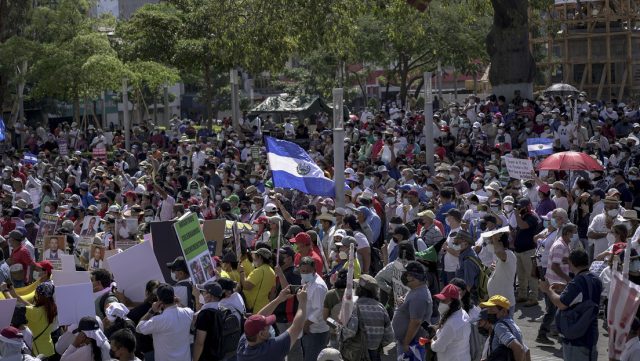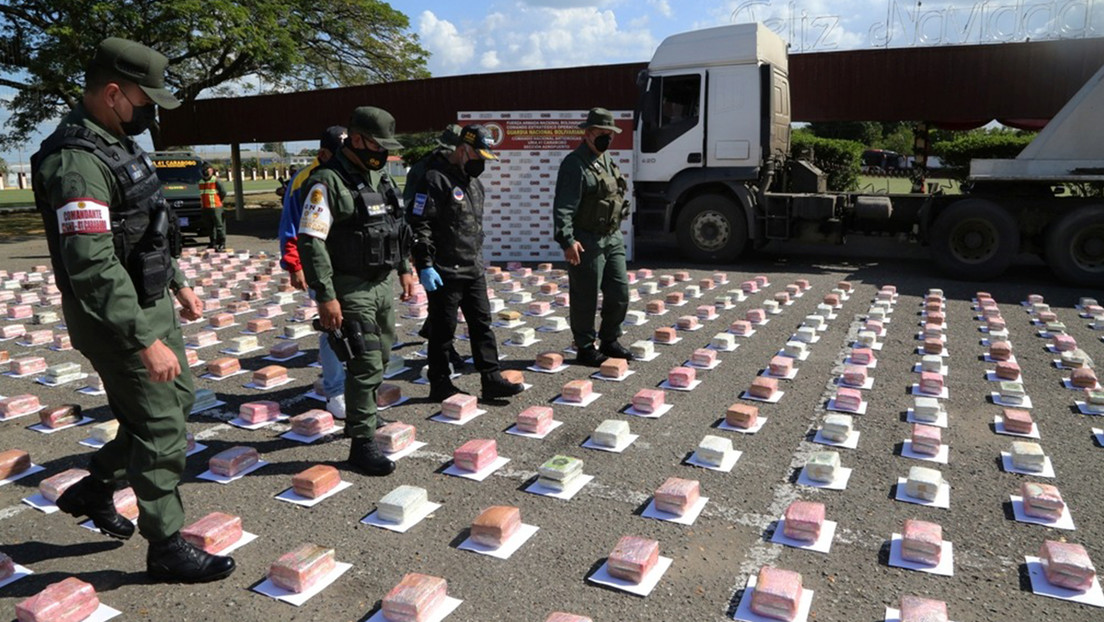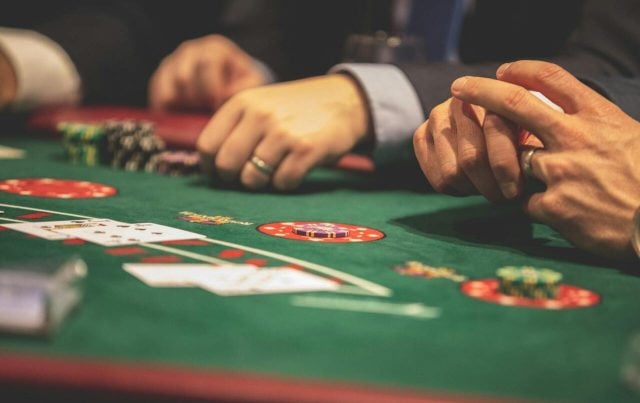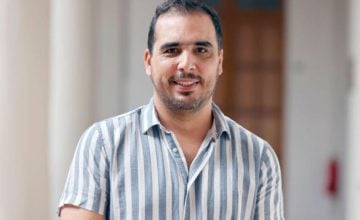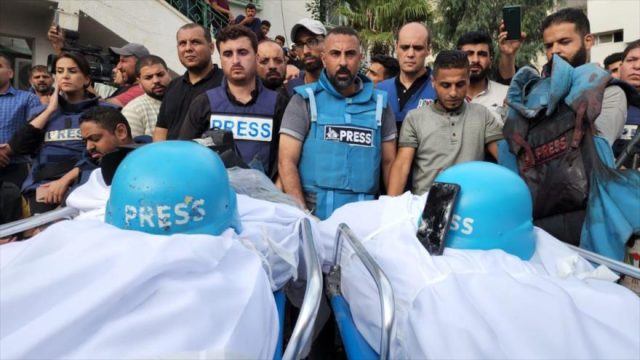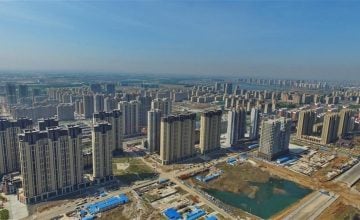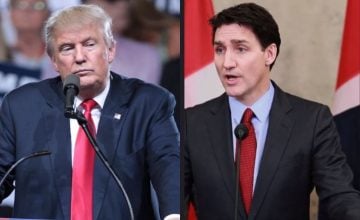In El Salvador, a new controversy has been generated around the administration of Nayib Bukele. This time, it has to do with the peace accords signed in 1992, which put an end to 12 years of civil war in the country.
On January 16, 1992, the Government of El Salvador –then in the hands of the Alianza Republicana Nacionalista (Arena)– and the Farabundo Martí National Liberation Front (FMLN) signed the so-called ‘Chapultepec Peace Agreements’ in Mexico. with which the armed conflict -which left around 75,000 dead – was considered over.
Then, by decree, January 16 was declared as Peace Day; and 14 years later, the document was reformed, so in 2006 its name was changed to National Peace Day, explains journalist Edgar Romero for RT.
Last week, specifically on January 11, when the 30th anniversary of the signing of the agreements was approaching, there was a new change in relation to this date. The Legislative Assembly, dominated by Bukele’s Nuevas Ideas (New Ideas) party, approved a new decree declaring January 16 as the Day of the Victims of the Armed Conflict.
With this, in addition, the two decrees approved in the previous legislatures were repealed and, therefore, the commemoration of the date on which the peace agreements were signed was annulled.
Ernesto Castro, president of the Legislative Assembly, of the Nuevas Ideas party, pointed out that the objective of this change «is to remember the victims» and «not the signatories of the peace agreements». «That day we should give recognition to fathers, mothers and children who have not found the truth or justice for their families», he said.
A pact?
The New Ideas parliamentary caucus insisted that the peace accords were nothing more than a political pact between Arena and the FMLN, a kind of amnesty in which they agreed that neither would pay for their actions.
Christian Guevara, head of the pro-government parliamentary faction, in a television interview that same January 11, pointed out that the peace accords “involved a pact of impunity among the perpetrators. The leaders of Arena and the FMLN put a padlock on themselves and forgave themselves their sins».
«In practice, these agreements were used to divide the country at their convenience, leaving the people in oblivion», said legislator Bladimir Barahona.
The new document was sanctioned by Bukele on Sunday, reported the Presidential House, which published a statement from the president. «With this decree we are doing historical justice, honoring the victims of an armed conflict that only represented the death and pain of hundreds of thousands of Salvadorans», said the president.
The president stated that these agreements «were nothing more than a division of the spoils by the two sides involved».
In addition, through his Twitter account, the president Bukele challenged those who decided to commemorate the 30th anniversary of the signing of the documents that ended the armed conflict.
«Those who want to celebrate this spurious agreement, do it, this is a free country; but it will no longer be a national holiday. And to those of the International Community that almost demand its celebration: do not get involved. We don’t question why you don’t celebrate parts of your history», he wrote.
What was agreed in 1992?
The Salvadoran critic, literary editor, and researcher Carlos Cañas Dinarte indicates that the peace accords in El Salvador «had as their goal to end the war, reduce the Armed Forces and place it under civilian command, transform the FMLN into an unarmed party, and avoid serious human rights violations».
According to the investigator, «that was what was agreed and fulfilled» under the surveillance of the United Nations Observer Mission in El Salvador (ONUSAL).
The Salvadoran Network of Human Rights Defenders states – for its part – that the signing of these agreements meant «a starting point for the construction of a just and democratic society».
They point out that trying to «erase» the day of the peace agreements and turn it into the day of the victims, «is in itself, denying the victims, it is a manipulation and a disrespect to their memory».
On Sunday, the Secretary General of the United Nations Organization (UN), António Guterres, also spoke, saying that the organization he heads «is proud to have helped Salvadorans pave the way to peace» and that this «must be protected and built every day”.
A day of protests against Bukele
Despite Bukele’s statements and the measure adopted by the Legislative Assembly, hundreds of people marched in San Salvador on Sunday to commemorate the 30th anniversary of the peace accords. The mobilization started from two points, the Cuscatlán park and the National Sports Institute (Indes), and ended with a concentration in the Gerardo Barrios square, in the historic center of San Salvador, where the organizers held a cultural event.
The protest was led by mothers of people who disappeared during the armed conflict, but there were also former FMLN guerrilla combatants, Army veterans, victims of human rights violations, members of social organizations, among others.
One of the mothers of a person who disappeared in the armed conflict publicly read a document, in which they call to respect the commemoration of the signing of the agreements.
“Three decades ago we chose the path of democracy, of respect for human rights, we do not want nor are we going to accept living in a dictatorship, we want to live in peace”, she criticized.
In addition, the protesters carried signs that read «No decree will erase our memory», «No dictator will erase our memory», «History is built, it is not erased with decrees», among other messages.
The demonstration, although massive, did not concentrate the same number of people as on previous occasions. Human rights defenders denounced that since the previous day, the authorities installed military checkpoints on the access roads to the Salvadoran capital, to prevent some groups from arriving.
Other reasons to march against Bukele
On the day of protest, the fourth major mobilization against the Government since these types of activities began on September 15, not only was the signing of the peace accords commemorated, but its participants expressed their discontent with various policies of Bukele’s administration.
Some banners carried by the protesters read: «Give us back El Salvador», «The PNC (National Civil Police) and the FA (Armed Forces) do not take care of us», «I want to live without fear», «I do not want to disappear, we demand security», «I love my country, but the Government embarrasses me», «Even though they spy on us, they cannot shut us up», among others.
Relatives of political prisoners also participated to demand the release of their relatives, whom they consider to have been imprisoned without judicial guarantees.
Losses in the FMLN
During the mobilization and through a letter, quoted by La Prensa Gráfica, Atilio Montalvo, former leader and founder of the FMLN, announced his departure from the leadership of the political formation, considering that it has an «archaic vision» of the political reality of El Savior.
He said that the FMLN, of which Bukele himself was a member between 2012 and 2017, is «caught in a dispute of interests» and that «there are leaders and militants who aspire to reconcile with the current dictatorship».
“There are leaders and militants who have been repeating a speech since Bukele was expelled from the FMLN, that this (expulsion) was a mistake; the other thing is that if they had deputies in the Legislative Assembly, (that) they were going to try to build bridges and reconcile; and one of the latest that they have tried to insinuate is that these marches, which are legitimate from the popular movement, are financed by the US”, Montalvo criticized.
